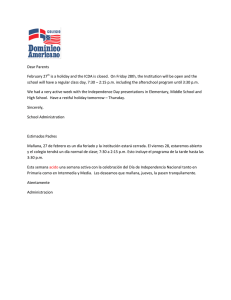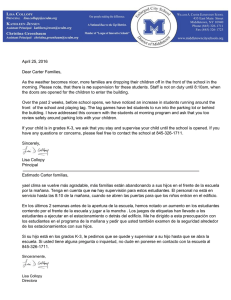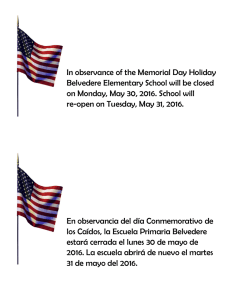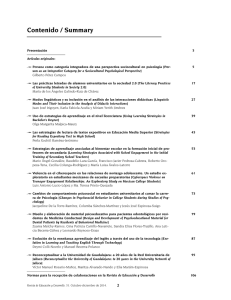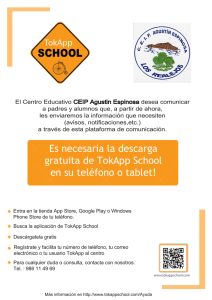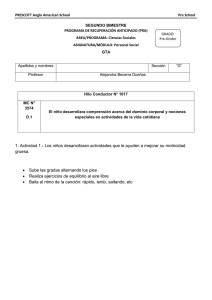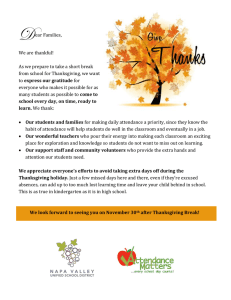Second Grade Spanish Unit 3: Vamos a aprender
Anuncio
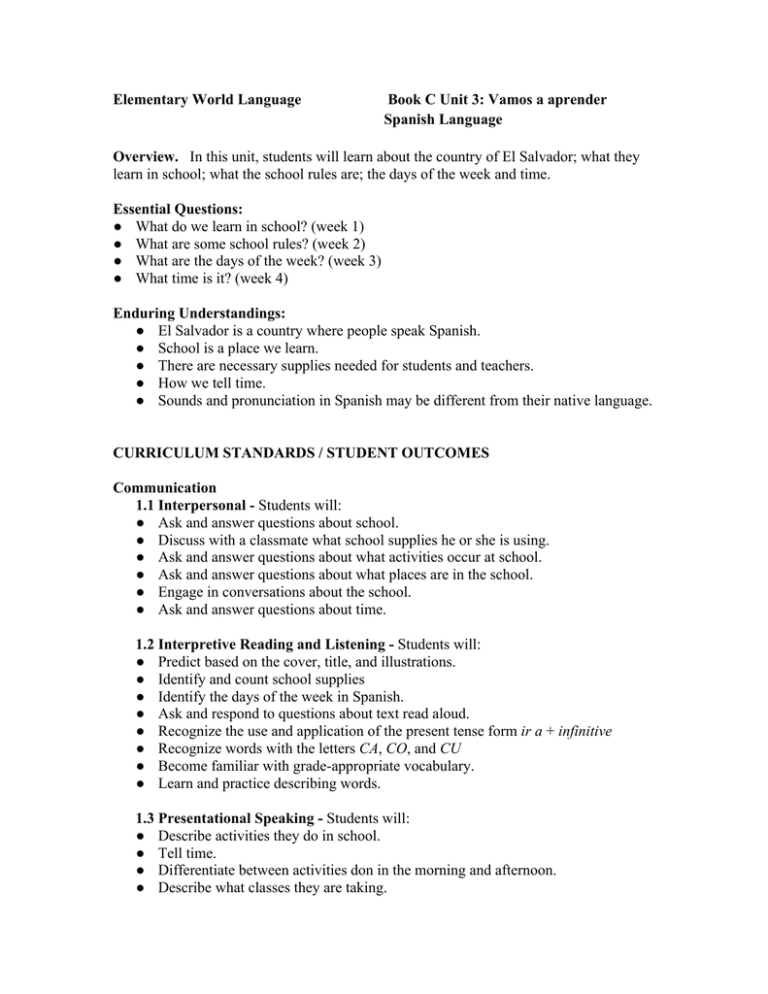
Elementary World Language Book C Unit 3: Vamos a aprender Spanish Language Overview. In this unit, students will learn about the country of El Salvador; what they learn in school; what the school rules are; the days of the week and time. Essential Questions: ● What do we learn in school? (week 1) ● What are some school rules? (week 2) ● What are the days of the week? (week 3) ● What time is it? (week 4) Enduring Understandings: ● El Salvador is a country where people speak Spanish. ● School is a place we learn. ● There are necessary supplies needed for students and teachers. ● How we tell time. ● Sounds and pronunciation in Spanish may be different from their native language. CURRICULUM STANDARDS / STUDENT OUTCOMES Communication 1.1 Interpersonal - Students will: ● Ask and answer questions about school. ● Discuss with a classmate what school supplies he or she is using. ● Ask and answer questions about what activities occur at school. ● Ask and answer questions about what places are in the school. ● Engage in conversations about the school. ● Ask and answer questions about time. 1.2 Interpretive Reading and Listening - Students will: ● Predict based on the cover, title, and illustrations. ● Identify and count school supplies ● Identify the days of the week in Spanish. ● Ask and respond to questions about text read aloud. ● Recognize the use and application of the present tense form ir a + infinitive ● Recognize words with the letters CA, CO, and CU ● Become familiar with grade-appropriate vocabulary. ● Learn and practice describing words. 1.3 Presentational Speaking - Students will: ● Describe activities they do in school. ● Tell time. ● Differentiate between activities don in the morning and afternoon. ● Describe what classes they are taking. Culture 2.1 Practices and Perspectives - Students will: ● Examine a class schedule in El Salvador. ● Name academic subjects studied by children in El Salvador. 2.2 Products and Perspectives - Students will: ● Name academic supplies used by children in El Salvador. Connections 3.1 Cross-curricular - Students will: ● Count up to 12. ● Tell time on the hour. ● Recognize words with the letters CA, CO, CU. 3.2 Target Culture - Students will: ● Acquire information about El Salvador through Spanish language media sources. ● Look at a Class schedule from a student in El Salvador. Comparisons 4.1 Language - Students will: ● Demonstrate one-to-one correspondence between spoken and printed words. ● Identify the letters CA, CO, and CU. ● Recognize the use and application of the present tense form ir a + infinitive 4.2 Culture - Students will: ● Compare schools in El Salvador with their own school. Communities 5.1 Beyond the School - Students will: ● Participate in simulations that replicate authentic conversations about school. 5.2 Lifelong Learner - Students will: ● Utilize the language to experience news and entertainment available through print and electronic Spanish language media. FUNCTIONS • VOCABULARY • STRUCTURES LANGUAGE FUNCTION CONTENT VOCABULARY LANGUAGE STRUCTURE Discuss what they are Classes: learning in school. ● arte ● ciencas ● español ● inglés ● matemáticas ● música ● ● ● ● Name school supplies. Supplies: ● crayón/crayones ● cuaderno ● lápiz/lápices ● libro ● ¿Qué usas? ● Yo uso (supplies). Identify places in the school. Places: ● clase ● escuela ● cafetería ● gimnasio ● patio ● salón de clases ● ¿Dónde aprendes (class)? ● Yo aprendo en (lugar). ● ¿Dónde juegas? ● Yo juego al patio. Discuss what school rules students must follow. Classroom Directions: ● deben/no deben ● levántense ● siéntense ● silencio ● esuchen ● Los estudiantes deben (classroom directions). Identify the days of the week. Discuss what they do on certain days of the week. Days of the Week: ● los días de la semana ● domingo ● lunes ● martes ● miércoles ● jueves ● viernes ● sábado Activities: ● juego/a ● baloncesto ● ¿Qué día es hoy? ● Hoy es . . . ● En el fin de semana ¿Qué aprendes? Yo aprendo (class) ¿Qué estudias? Estudio (classes). ● ¿Qué días vas a la escuela? ● El domingo vamos a. . . ● El sábado vamos a . . . ● beísbol Ask and tell what time it is. Describe a class schedule Time: ● horario ● reloj Numbers: ● uno ● dos ● tres ● cuatro ● cinco ● seis ● siete ● ocho ● nueve ● diez ● once ● doce Time Expressions: ● por la mañana/tarde/noche ● ¿qué hora es? ● ● ● ● ¿Qué hora es? Son las (numbers). Es la una. ¿Cuándo estudian los niños (classes)? ● Los niños estudian (classes) por la mañana/por la tarde. ● ¿A qué hora estudian los niños (classes)? Los niños estudian (classes) a las (numbers).
